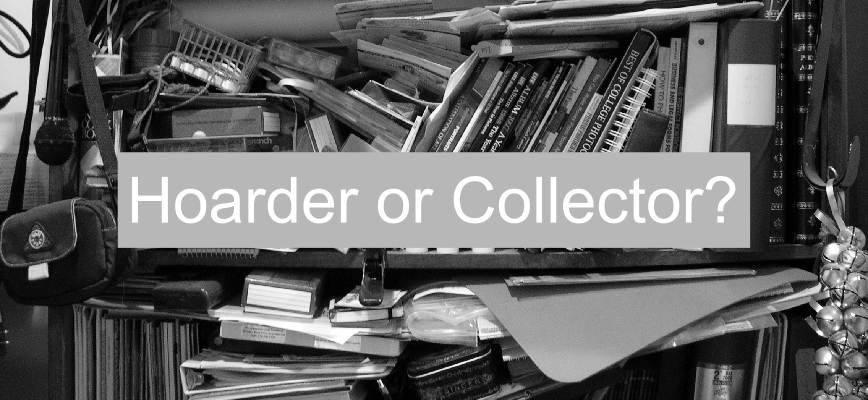Many of us would use the word hoarder to describe someone that just loves to collect and keep things, and due to the array of items they simply can’t part with they would generally tend to live in a bit of a mess surrounded by their clutter. Well, not anymore.
Hoarding is now a recognised obsessive compulsive disorder that can often lead to further mental health problems if not dealt with correctly.
Hoarding is defined as a continuous difficulty parting or disposing of possessions because of a perceived need to save them. A hoarder accumulates an obsessive amount of items regardless of their actual value and the thought of get rid of them can cause great distress.Here are 6 things you should know about hoarders:
We all have little piles of clutter around the home, a pile of post that you have been meaning to sort through, clothes thrown into the wardrobe and drawers rather than beautifully hung or lovingly folded. However, it is another thing to begin storing things in places that are not designed for storage. Filling your shower, dining room table or oven with boxes, for example, could mean that you are showing signs of hoarding.
If you have ever visited the house of a collector you will see their prized possessions organised and neatly displayed, maybe even catalogued or wrapped and sealed for preservation. A hoarder has items all over the place in piles and often stacked precariously. Many items may have even become broken or dirty and tossed aside, but never disposed of.#3 Hoarders have good intentions
A hoarder has every good intention of using their acquisitions, regardless of how many of the same item they may already have. However, their good intentions never seem to come fruition, and so the clutter mounts. A hoarder will often take in broken items with an honest plan of mending or recycling, for example, it just never happens.#4 Triggered by Loss
As with many stress disorders, hoarding disorder can be triggered by a major or stressful event such as the loss of a family member or a divorce. A hoarder has an emotional connection with their “belongings” that remains the same.
#5 Health and Safety
An overfilled house can cause many health and safety risks, fire hazards, problems with mould and vermin not to mention the trips and falls that could potentially happen. The hoarding can take up so much room in a house that it can be hard to reach essential appliances that need regular servicing, which can create further risk. Family ties can also come under stress as family members an unhappy to visit an unsafe home, particularly with young children.
#6 Isolation
A hoarder simply can’t help themselves, but this doesn’t stop the feeling embarrassed about the state of their home or the amount of clutter in it. This will prevent them, or other family members, from inviting guests into their home. There may not even be anywhere for them to sit comfortably.
#7 Recovery Requires Therapy
It is no good just packing up a hoarders belongings and storing them in the nearest self-storage facility, being separated from their belongings will only cause them great deals of stress and could possibly worsen their condition. Special therapies are needed to help hoarders deal with and recover from this disorder.
Do you think you know a hoarder or are you one yourself?
Here are 5 warning signs that you or someone you know may be suffering from hoarding disorder:
- Chronic disorganisation to the point of it interfering with your normal day to day activities.
- Never invited into their home, the amount of clutter is too embarrassing.
- Blindness to clutter, not being able to see how your house looks to others.
- Becoming stressed about belongings, the amount you are accumulating with nowhere to house them.
- Compulsive buying or acquiring from shopping in person or online or maybe just collecting free stuff.
- Packages piling up. Leaving purchases unopened or sitting unused.
Do you know a hoarder or collector? Share your experiences with us in the comments.
